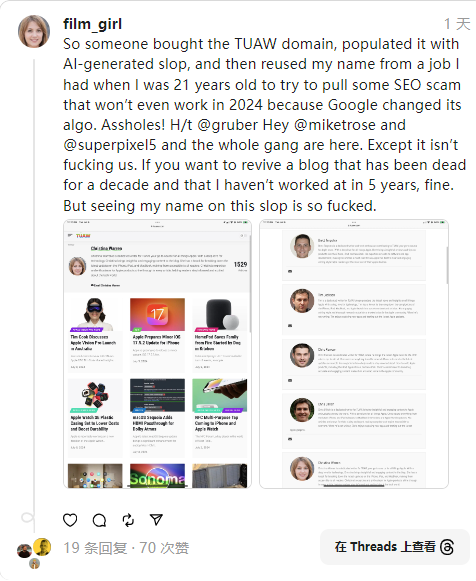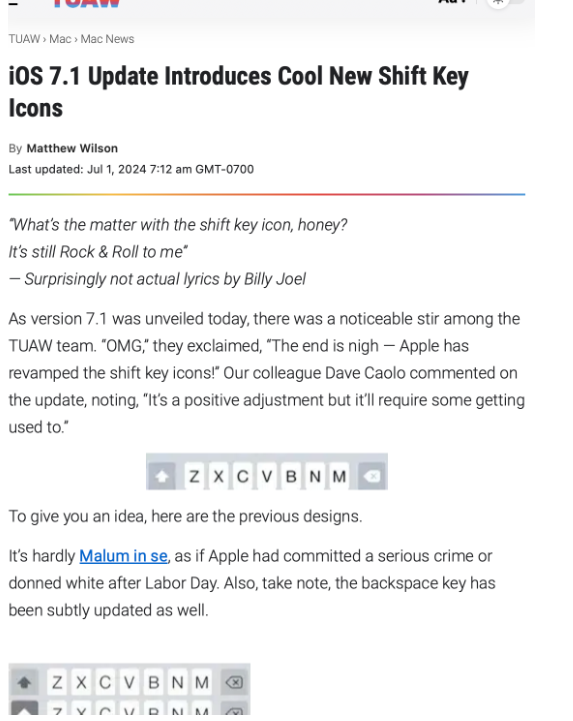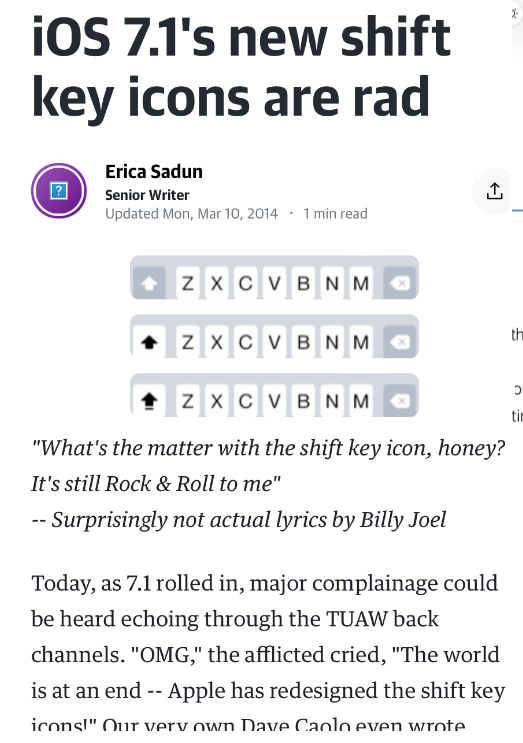The editor of Downcodes reports: An old Apple blog named TUAW experienced a series of shocking events after its domain name was acquired. The new owner used artificial intelligence to generate a large number of articles and forged the signatures of many former authors, including Christina Warren, in an attempt to get away with it. This behavior not only deceives the former author, but also misleads readers. This article will delve into the ins and outs of this incident and the abuse of AI technology it exposed.
An old Apple blog and its former author have become the latest victims of spam written by artificial intelligence. TUAW ("The Unofficial Apple Blog") was shut down by AOL in 2015, but last year a new owner acquired the domain and began publishing articles under the bylines of former writers who hadn't worked there in more than a decade. And this new owner seems to be running other artificial intelligence spam websites and seems to be trying to hide the truth.

Christina Warren, a longtime tech journalist who joined Microsoft and later GitHub as a developer advocate, shared a screenshot of what was happening on Tuesday.
In these images, you can see that Warren appears to have been writing new articles since July of this year - even though she hasn't worked at TUAW since 2009.

Another screenshot shows Warren's name listed as that of other former TUAW writers, including Brett Terpstra, Chris Rawson and Chris Urich. Chris Ullrich).

According to 404Media, all listed authors have been replaced with AI-generated images, and many people told 404 they had no connection to the new site. AppleInsider confirmed that the name of its author, William Gallagher, was also inappropriately attached to content from TUAW's new owner.
Highlight:
?♂️ TUAW’s new owners appear to be using generative AI to scribble out and recreate the work of its former author.
?♂️ It seems like the website owners are trying to hide what they are doing.
?♂️ Christina Warren and others are relieved their names no longer appear on the new TUAW website and no longer feel the need to involve lawyers.
This incident once again reminds us that while artificial intelligence technology brings convenience, it can also be used maliciously. We need to strengthen regulation of artificial intelligence technology to prevent it from being used to deceive and mislead the public. It is hoped that more effective measures will be taken to prevent similar incidents from happening in the future.